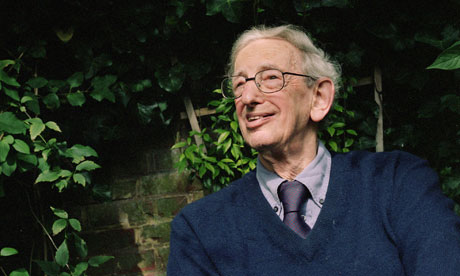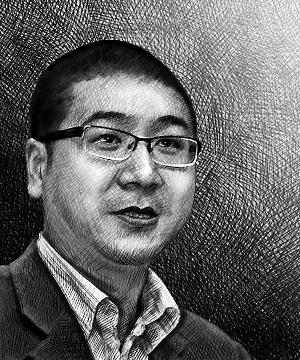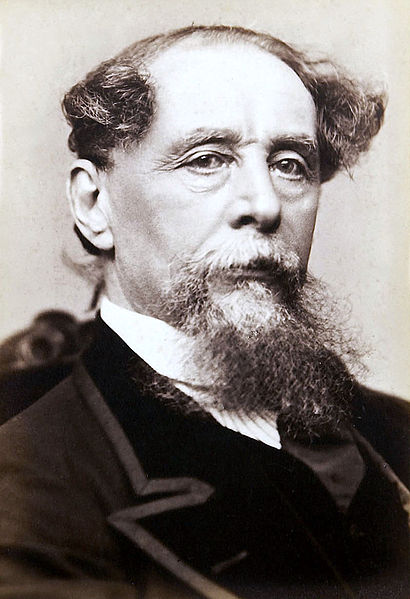索尔仁尼琴诞辰一百周年
今天,2018年12月11日,是索尔仁尼琴诞辰一百周年。
根据 Gary Saul Morson 教授的看法,二十世纪俄国文学,称得上经典的,大概只有《古拉格群岛》及《大师和玛格丽特》。
索尔仁尼琴英文传记作者 Michael Scammell 在《纽约时报》的纪念文章:The Writer Who Destroyed an Empire。
今天,2018年12月11日,是索尔仁尼琴诞辰一百周年。
根据 Gary Saul Morson 教授的看法,二十世纪俄国文学,称得上经典的,大概只有《古拉格群岛》及《大师和玛格丽特》。
索尔仁尼琴英文传记作者 Michael Scammell 在《纽约时报》的纪念文章:The Writer Who Destroyed an Empire。
讼案本身,及美国大学招生涉嫌歧视亚裔申请人的相关资料:
詹姆斯·法罗斯(James Fallows),《大西洋》杂志著名记者,也算是中国问题专家。其长文《中国的大跃退》(China’s Great Leap Backward),作为封面文章,发表于《大西洋》2017年12月号。尽管是一年多以前的文章了,今天仍然值得推荐给尚未读过的朋友:
英文全文:China’s Great Leap Backward @ The Atlantic
全文音频版:

“Christmas Eve” by Gustave Doré (1832-1883)
The Posner on Posner series began on November 24, 2014 and ended with the Afterword on January 5, 2015. Below is a hyperlinked list of all the posts.
Table of Contents
Forthcoming: Richard Posner (Oxford University Press, Spring, 2015) by William Domnarski.
Cartoons by Clay Bennett:
NYT: Panel Faults C.I.A. Over Brutality and Deceit in Terrorism Interrogations
Above the Law 的报道 “Judge Posner’s Blistering Benchslaps At The Same-Sex Marriage Arguments”:
As we mentioned in Morning Docket and on Twitter, yesterday’s Seventh Circuit arguments weren’t fun for the defenders of Wisconsin and Indiana’s same-sex marriage bans. The three judges, especially Judge Richard Posner, were tough — very tough.
Chris Geidner of BuzzFeed, a leading chronicler of marriage-equality litigation, described the proceedings as “the most lopsided arguments over marriage bans at a federal appeals court this year.” Ian Millhiser of ThinkProgress called it “a bloodbath.”
That’s no exaggeration. Let’s check out the specifics….
A Seventh Circuit panel consisting of Judge Richard Posner, Judge Ann Claire Williams, and Judge David F. Hamilton heard argument on Tuesday in two cases: Baskin v. Bogan, a challenge to Indiana’s statutory ban on same-sex marriage, and Wolf v. Walker, a challenge to Wisconsin’s constitutional ban on same-sex marriage. You can listen to the arguments here (Baskin) and here (Wolf).
WIRED: Edward Snowden: The Untold Story
THE MESSAGE ARRIVES on my “clean machine,” a MacBook Air loaded only with a sophisticated encryption package. “Change in plans,” my contact says. “Be in the lobby of the Hotel ______ by 1 pm. Bring a book and wait for ES to find you.”
ES is Edward Snowden, the most wanted man in the world. For almost nine months, I have been trying to set up an interview with him—traveling to Berlin, Rio de Janeiro twice, and New York multiple times to talk with the handful of his confidants who can arrange a meeting. Among other things, I want to answer a burning question: What drove Snowden to leak hundreds of thousands of top-secret documents, revelations that have laid bare the vast scope of the government’s domestic surveillance programs? In May I received an email from his lawyer, ACLU attorney Ben Wizner, confirming that Snowden would meet me in Moscow and let me hang out and chat with him for what turned out to be three solid days over several weeks. It is the most time that any journalist has been allowed to spend with him since he arrived in Russia in June 2013. But the finer details of the rendezvous remain shrouded in mystery. I landed in Moscow without knowing precisely where or when Snowden and I would actually meet. Now, at last, the details are set.
Continue to read the full text.
《纽约时报》2013年12月28日头版长篇报道:
David Kocieniewski, Academics Who Defend Wall St. Reap Reward
刚刚有了官方中译文:为华尔街充当代言人的经济学家
2014年1月1日,美国《患者保护和平价医疗法案》即医改法案将正式实施,美国原来的医保计划的困境在哪里,这次医改会引发什么样的变化,这次涉及全体美国人的改革,命运究竟如何?利求同女士曾多年在美国的电讯、保险和人力资源大公司从事知识管理与竞争信息咨询工作,她认为,这次医改法案最核心目标的有三点:一是让所有的人都加入医保,二是提高医疗质量,三是降低医疗服务的费用。
美国即将启动全民医保。能简单介绍一下这部最新医保改革法案吗。奥巴马强力推行的这一法案,其核心是什么?
利求同:二〇一〇年三月,国会通过了《患者保护与平价医疗法》(Patient Protection and Affordable Care Act,以下简称《平价法》),奥巴马总统当月二十三号签字生效。这就是令美国两党和利益集团争战不休的“奥巴马医改”(Obamacare)的主要成果。这《平价医疗法》的核心目标有三个:一是全民医保,二是提高医疗服务质量,三是降低费用。
基于《平价法》,明年元旦起,美国将正式启动全民医疗保险,按计划逐步实施,至二〇一九年全部完成。这在美国,实在是一个划时代的事件,几代美国人奋斗的结果。美国的医疗服务,一直是以医学发达、资源充足而骄傲的。但是问题也很大:服务分布不均,费用居高不下且不断攀升,财政不堪重负,老百姓和企业叫苦连天;还有大量人口没有医保。据联邦人口局(Census Bureau)的统计数据,二〇〇九年,无医保者高达五千多万,占总人口的16.7%,简直不像这个世界的唯一超级大国了。
所以长期以来,迫于民怨,两党都一致认为医改势在必行。但如何改,却是各持己见,互不相让,毕竟牵扯到不同阶层地域、不同产业、不同组织的不同利益。之前,克林顿政府企图大改,由希拉里主导,因为起步失当,得罪了既得利益,不久就偃旗息鼓。小布什总统任上,也尝试过改革医疗信息系统,没有动真格。但民怨蓄久了,就“倒逼改革”,跟中国是一样的情形。于是奥巴马在第一次总统竞选中向选民许愿医改,实现全民医保。上任第二年,就做起来,最后《平价法》得以通过,为全民医保铺平了道路。显然,这是老百姓大力支持的结果。针对现有医疗体系的三大问题:服务覆盖面不全、医护质量需优化及高费用,《平价法》提出了一系列解决方案。有些新举措尤其引人注目,如:强制个人购买医保;全职员工50名以上的企业必须给员工提供医保;向高收入者征收较高的医疗税;规定最低医保计划的基本保项;以及建立联邦/州政府的网上医保交易所(Exchanges),开辟网上医保市场,帮助民众选购保险公司提供的达标医保计划,等等。《平价法》试图在原有的公民自愿和市场机制中,注入集体互助精神。它保留了原系统中所有的子系统—— 包括雇主计划,老年人计划、低收入者计划,以及开放市场上的计划——, 加上新建的政府医保交易所,集合成一个全民医保体系。《平价法》连同配套的相关条例,涉及面之广、规定之琐细,可谓空前。有国会议员数了数,说这套法规目前已经长达20,202页,而条例解释还远未完善!“奥巴马医改”牵动的利益之错综复杂,于此可见一斑。

Eric John Ernest Hobsbawm (9 June 1917 – 1 October 2012). Photograph: Karen Robinson
The Guardian: Eric Hobsbawm obituary: Historian in the Marxist tradition with a global reach
谌洪果按:本访谈载于《北京晚报》2012年5月7日第18版,感谢周明杰的采访,并感谢宋溪的素描。这是我更为系统全面的对为什么不参评教授的思考。由于版面所限,发表时有所删节,这里贴出的是完整版。
高校进入职称评审季,丑闻接二连三。刚刚过去的周末,湖南曝出职称评委在宾馆“开房收钱”,后经查实通报被终止评审专家资格;上周,武汉大学也曾曝出疑似职称评审导致的教授打架事件;与此同时,西北政法大学副教授谌洪果公开在媒体上发文表态,详细阐述自己不参加教授评审的理由。网名为“御史在途”的湖南省纪委预防腐败室副主任陆群在微博上评论说,“这方面的问题非常严重,条件再好的教师,不随俗也可能被潜规则。”
高校职称评审究竟水有多深?在公开表态不参评教授背后,到底有怎样的背景和考量?新闻观点对话了身处焦点之中的谌洪果——
新闻观点:为什么会作这种公开表态呢?
 谌洪果:对于不再参评教授一事,我其实在四年前就已经做出了深思熟虑的抉择。武汉大学出的这个事件,只不过为我公开表达自己的看法提供了一个契机。
谌洪果:对于不再参评教授一事,我其实在四年前就已经做出了深思熟虑的抉择。武汉大学出的这个事件,只不过为我公开表达自己的看法提供了一个契机。
我并不是一个标新立异的人,所作所为,大都出于职业的本分。我2006年博士毕业后在西北政法大学很快就评上了副教授,当时与我同一批进校的好几个学术上很有活力的年轻人,4、5年之后都评上了教授。几年来,许多领导、朋友甚至我的学生都在不同场合都在询问我怎么还不评教授,对我极为关心,然而就我内心感受而言,我实在也被问烦了,所以就趁这个机会做个明确的表态吧。
新闻观点:您自认不是一个标新立异的人,但是您的做法并不常见,而且也引起了很大的反应,您这种行为难道不够标新立异吗?
谌洪果:我不认为这是标新立异,就我所知,在法学圈,有不少非常优秀的大学老师早已做出了这种选择,他们以实际行动不参与这个游戏,甚至有人比我更潇洒,连讲师也不参评,只要能给学生授课就行。我最多说出了他们的想法而已。产生这么大的反响,是我没有想到的。这两天我也在分析为什么会引起如此热烈的关注,我想大概有几个原因,一是社会公众对于当下许多教授的欺世盗名、名不副实颇有微词。在今天这个越来越开放和自由的时代,面对一些重大公共事件,人们发现许多所谓的教授专家发言违背常识,不讲逻辑,视野狭窄,让人大跌眼镜;二是中国高校建设表面轰轰烈烈,却始终难以产出一流学术成果,学术腐败问题被不断揭露,人们对此极为不满;三是大家对大学教育本身的失望。许多已经接受过或正在接受大学教育的人,不幸地发现自己最为宝贵的四年青春年华,却在大学里虚度。没有遇到好老师,没有学到真本事。总之,我的这篇文章能够引发大学内外的共鸣,说明整个社会对于中国的大学教育和大学教师,还有很大的期待空间。

Charles John Huffam Dickens (1812.2.7 – 1870.6.9.)
近来在美国高等教育界掀起轩然大波的“影子学者”但丁(Ed Dante)先生及其讲述的美国大学生学术舞弊的故事:
缘起:Ed Dante, “The Shadow Scholar,” The Chronicle Review, November 12, 2010.
对话:Live Chat With an Academic Mercenary, November 12, 2010.
评论:Something Is Rotten in Academe, January 9, 2011.
后续:‘Shadow Scholar’ Is Writing a Book on Cheating, January 23, 2011.
参考:Ed Dante’s website.
……
现身:An Academic Ghostwriter, the ‘Shadow Scholar,’ Comes Clean, August 21, 2012.
NYT: Winner’s Chair Remains Empty at Nobel Event

Two (so far) most recommended comments:
China does need democracy, but we absolutely do not need the Western one. In your democracy, what’s most important to win an election are money, a glib tongue and an extremely brazen face. Ordinary people have no choice but to pick a less rotten apple among rotten apples. Before election you can get everything promised by the candidate, after it nothing will be realized. With 1.3-billion population and 56 ethnic minorities, a Western democracy will definitely threaten the unity of our country. China is more like European Union and many provinces of which have tens of millions of population. What’s more, the majority of Han people can easily eclipse other minorities’ voice, such as five-million Tibetans and nine-million Uighurs. Under the so-called democracy, the rights of the minorities will be deadly compromised and social conflicts can be completely aroused. Furthermore, most of the Chinese people lack the knowledge of basic principles of democracy. They know nothing about forgiveness and pardon. The notion “I disapprove of what you say, but I will defend to the death your right to say it” is almost unknown to 99 percent of the population. If they disapprove of what you say, they will try to silence you completely. This is not the fault of our government. Sadly, this is the prevalence in China. Those who oppose you are to be eliminated. That’s the main difference between the Western world and China. I think we Chinese need a revolution of thought which should aim at the deep-rooted conservative thoughts of the masses. Only a democracy won’t solve the problems of China and can hold up our development, even arouses social unrest, which, at last, will only greatly damages the welfare of the people. Something deeper than political system should be thought. Liu Xiaobo is a little naive and shallow and his ideas almost don’t suit the actual conditions of China. Though I don’t agree with all what he said, I still respect him for his brave advocacy of human rights and the freedom of speech which are essential to a more democratic society. That’s what China needs.
—Aron Lee. Shanghai, China. December 10th, 2010 11:27 am